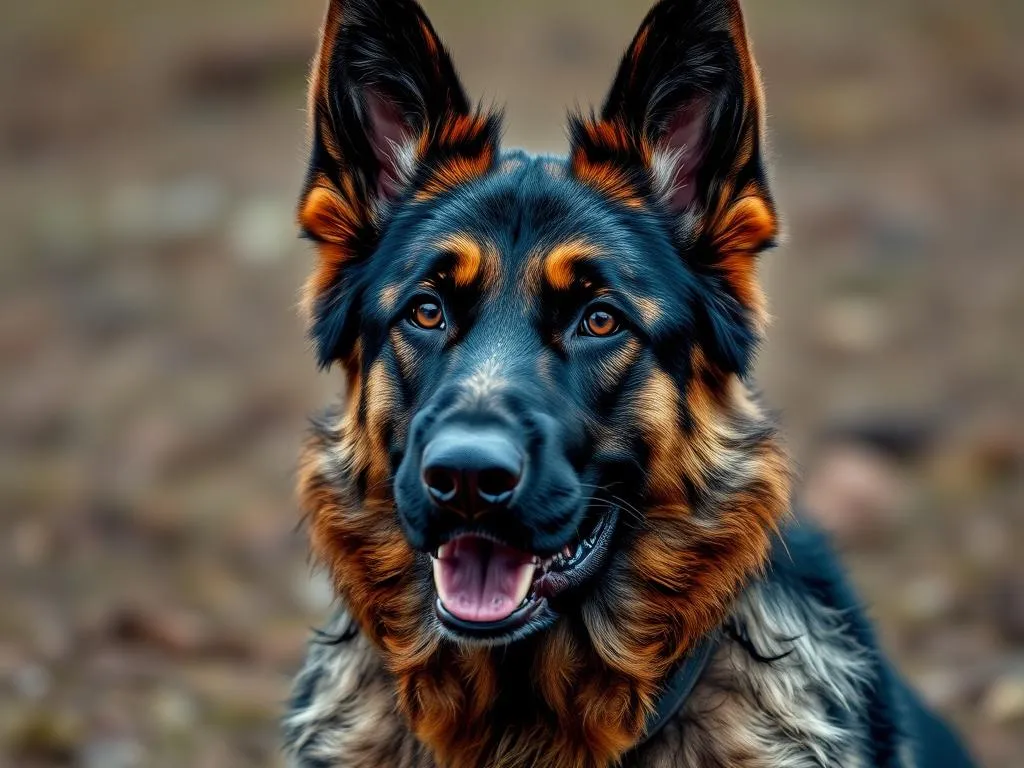
Introduction
German Shepherds are one of the most beloved dog breeds worldwide, known for their intelligence, loyalty, and versatility. As working dogs, they excel in various roles ranging from police and service dogs to family companions. In recent years, German Shepherd mixes have gained popularity among pet owners, offering a unique combination of characteristics from both parent breeds.
Mixed breeds often bring a diverse set of traits, which can make them ideal companions for many families. This article delves into the world of German Shepherd mixes, highlighting their origins, characteristics, and some of the most popular mixes available.
Understanding German Shepherds
History of the German Shepherd Breed
The German Shepherd breed originated in Germany in the late 19th century, primarily developed by Captain Max von Stephanitz. He aimed to create a herding dog that was intelligent, strong, and versatile. This breed quickly gained recognition not only for its herding abilities but also for its capacity to serve in various roles, such as police, military, and search-and-rescue work.
Over the decades, German Shepherds have become synonymous with loyalty and bravery, making them a favorite among service organizations and families alike.
Characteristics of German Shepherds
German Shepherds are medium to large-sized dogs, typically weighing between 50 to 90 pounds. They possess a strong, muscular build with a distinctive coat that can vary in color from black and tan to sable and all-black. Their double coat requires regular grooming to maintain a healthy appearance.
In terms of temperament, German Shepherds are highly intelligent, making them one of the easiest breeds to train. They are known for their loyalty, protective instincts, and strong work ethic. These traits make them excellent family pets, particularly for active households that can provide ample mental and physical stimulation.
Health Considerations
Like all breeds, German Shepherds are prone to specific health issues. Common concerns include hip dysplasia, degenerative myelopathy, and certain genetic conditions. With a lifespan averaging 9 to 13 years, regular veterinary care, a balanced diet, and exercise are essential components of their overall health and well-being.
The Benefits of Mixed Breeds
Hybrid Vigor
One significant advantage of German Shepherd mixes is the concept of hybrid vigor. This phenomenon occurs when mixed-breed dogs inherit a broader genetic pool, often leading to improved health and vitality. As a result, these dogs may show increased resistance to certain diseases compared to their purebred counterparts.
Diverse Traits
Mixed breeds can combine desirable traits from both parent breeds, offering a unique blend of characteristics. For example, a German Shepherd mix might inherit the intelligence and trainability of a German Shepherd along with the playful nature of a Labrador Retriever, resulting in a well-rounded companion.
Popularity and Adoption Trends
In recent years, the trend of adopting mixed-breed dogs has surged. This popularity can be attributed to the perception that mixed breeds often possess fewer genetic health issues and come with diverse personalities and traits, making them appealing to various lifestyles.
Popular German Shepherd Mixes
German Shepherd and Labrador Retriever
The combination of a German Shepherd and a Labrador Retriever results in an energetic and friendly companion. Labradors are known for their playful and loving nature, which complements the loyalty and intelligence of German Shepherds. This mix is ideal for families, as they tend to be great with children and other pets. They require regular exercise and mental stimulation to keep them happy and healthy.
German Shepherd and Golden Retriever
A mix between a German Shepherd and a Golden Retriever often results in a dog that is not only beautiful but also incredibly friendly and intelligent. Golden Retrievers are known for their gentle temperament, making this mix an excellent choice for families. These dogs thrive on companionship and are highly trainable, making them suitable for various activities, including obedience training and agility.
German Shepherd and Husky
This blend of a German Shepherd and a Siberian Husky creates a strikingly beautiful dog with a strong personality. Both breeds are known for their high energy levels and need for extensive exercise. This mix is perfect for active individuals or families who can provide plenty of outdoor activities. They are known for their affectionate nature but may require more training and socialization compared to other mixes.
German Shepherd and Rottweiler
The German Shepherd and Rottweiler mix is a powerful and protective breed. Both parent breeds have strong guarding instincts, making this mix a good choice for families looking for a protective companion. Early socialization and training are crucial for this mix to ensure they develop into well-rounded, friendly pets.
German Shepherd and Boxer
A mix between a German Shepherd and a Boxer creates a playful and energetic dog. Boxers are known for their fun-loving nature and loyalty, which complements the intelligence and trainability of German Shepherds. This mix is ideal for families with children, as they are typically very playful and affectionate. Regular exercise and mental stimulation are essential to keep them happy.
Other Notable Mixes
In addition to the popular mixes mentioned, there are other notable German Shepherd mixes worth considering:
- German Shepherd and Poodle: This mix combines intelligence and low-shedding coats, making them suitable for allergy sufferers.
- German Shepherd and Beagle: This mix offers a smaller, friendly dog with a playful demeanor.
Training and Socialization of German Shepherd Mixes
Importance of Early Training
Starting training early is crucial for any dog, particularly for German Shepherd mixes. Early training helps establish good behavior patterns and can prevent problems down the line. These dogs are often eager to please, making them receptive to training, especially when positive reinforcement is used.
Socialization Techniques
Effective socialization is vital for mixed breeds to ensure they are comfortable around other pets and people. Introduce your dog to various environments, sounds, and experiences early on. Enrolling in puppy classes or dog parks can provide invaluable opportunities for socialization.
Ongoing Training Needs
Continuous training and reinforcement are essential for maintaining good behavior in German Shepherd mixes. Regular training sessions help keep their minds engaged and can prevent boredom, which may lead to destructive behavior. Incorporating various activities, such as agility training or obedience classes, can provide a well-rounded experience for you and your dog.
Health and Care for German Shepherd Mixes
Regular Veterinary Care
Routine veterinary check-ups are essential for any dog, including German Shepherd mixes. Regular vaccinations, parasite prevention, and health screenings can help identify potential issues early and ensure your dog stays healthy and happy.
Diet and Nutrition
Providing a balanced diet tailored to the specific needs of your German Shepherd mix is crucial. Consult your veterinarian for recommendations on high-quality dog food that meets your dog’s nutritional requirements. Pay attention to their weight and adjust their diet as needed, particularly if they are less active.
Exercise Requirements
The exercise needs of German Shepherd mixes can vary depending on the traits inherited from the parent breeds. Most mixes will benefit from daily walks, playtime, and mental stimulation. Engaging your dog in activities like fetch, agility courses, or obedience training can help keep them healthy and happy.
Conclusion
Adopting a German Shepherd mix offers a unique opportunity to enjoy the best traits of both parent breeds. These dogs can be loyal companions, protective guardians, and playful family members. Whether you choose a mix with a Labrador, Golden Retriever, or any other breed, the joy and companionship they bring can be immeasurable.
Considering a mixed breed not only opens the door to a wonderful pet but also supports the adoption trend, giving these dogs a loving home. Remember, each dog is an individual with its unique personality, so take the time to understand your dog’s needs and traits for a fulfilling companionship.
Frequently Asked Questions
What is the average lifespan of a German Shepherd mix?
The average lifespan of a German Shepherd mix typically ranges from 10 to 15 years, depending on various factors such as genetics and overall care.
Are German Shepherd mixes good with children?
Yes, many German Shepherd mixes are known for their friendly and protective nature, making them great companions for families with children. Early socialization is essential to ensure they are comfortable around kids.
How much exercise do German Shepherd mixes need?
Most German Shepherd mixes require at least 60 minutes of exercise daily, including walks, playtime, and mental challenges to keep them engaged.
Can German Shepherd mixes be trained easily?
Yes, German Shepherd mixes are often intelligent and eager to please, making them relatively easy to train with positive reinforcement and consistency.
Where to adopt German Shepherd mixes?
Many animal shelters and rescue organizations have German Shepherd mixes available for adoption. Local breed-specific rescues may also have these mixes in their care, so it’s worth checking with them.
In conclusion, German Shepherd mixes can be a fantastic choice for anyone looking for a loyal, intelligent, and loving companion. With proper care, training, and socialization, these dogs can thrive in a family environment, providing joy and companionship for years to come.









